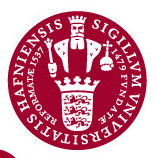An Introduction to Global Health - mHealth in Reproductive and Child Health (10:10)
(View Complete Item Description)This presentation provides an introduction to the innovative use of technology to improve maternal and child health in low and middle income countries. Two of the major challenges in relation to reproductive and child health is access to health services and the quality of services provided in the health system. In continuation of this we’ll look into how mobile phone interventions can strengthen access to and quality of life saving interventions particularly in the time surrounding the delivery when the woman and the newborns are most vulnerable.
Material Type: Lecture




















